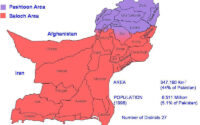POWER BATTLES BETWEEN STATE AND SOCIAL MEDIA GIANTS
This article is written by Anjaly Ann Joseph from Government Law College, Ernakulam.
INTRODUCTION
Social media platforms are lauded for facilitating human interactions worldwide. However, slowly it has permeated to day to day life and it is almost impossible to live without them. Apparently social media companies like WhatsApp, Twitter, Facebook and so on, are an undeniable presence in the world today. All possible advantages of social media were explored and celebrated immediately, but the masses are grappling with its pitfalls and the world nations are trying hard to contain them.
SOCIAL MEDIA REGULATIONS IN INDIA
Article 19(1)(a) of the Indian Constitution guarantees freedom of speech and expression to the citizens. Undeniably social media have become a major platform for the exercise of this fundamental right, but as every other fundamental right, speech and expression in social media is subject to reasonable restriction. This reality is contrary to the idea promoted by the tech giants of silicon valley that social media is a space without laws and restraints of a normal society.
Social media in India is regulated by the Information Technology Act 2000. According to Section 79 of the Act, social media intermediary will not be liable for any third party information, hosted by him. This is known as a safe harbour provision. However, according to (2), for immunity to be applicable, the function of the intermediary should be limited to providing access to communication system and intermediaries should not initiate transmission, select reliever of transmission, select or modify information in the transmission. Alongside, this provision mandates that due diligence on the part of intermediary. Clause(3) provides situations when intermediaries can be held liable – conspired, abetted, aided or induced to an unlawful act or if intermediary fails to expeditiously remove content notified by government that may lead to an unlawful act.
Shreya Singhal v UOI clarified that unlawful content must be taken down upon court order or government order and not the exercise of its own discretion. Section 69A emperors government to order intermediary to block information affecting the interests of the country. Failure to comply with this order can attract punishment of imprisonment up to seven years. The Act also defines intermediaries under section 2(w) as a person who receives, stores or transmits data. Intermediaries include telecom service providers, web housing service providers, search engines, online payment sites, online auction sites, online marketplace and cyber cafes.
The Information Technology (Intermediary Guidelines and Digital Media ethics code) Rules 2021 mandates due diligence by intermediaries like blocking unlawful information within 36 hours and informing users about rules and regulations, privacy policy and so on. Significant Social Media Intermediaries(SSMI) require additional due diligence including appointing of a chief compliance officer, nodal officer and publishing a monthly compliance report. Also social media intermediaries must track down first originator of information.
REGULATORY FRAMEWORK IN AUSTRALIA AND EUROPEAN UNION
Australian government is a step ahead with regulation on usage of news content by Facebook and Google with the News Media Bargaining Code passed in February 2021.This act requires tech giants to pay local news agencies for showing their news as snippets and search results. Upon the failure of payment negotiations, they will have to resort to arbitration. Facebook got into a faceoff with government by an unprecedented blackout, preventing users from viewing and sharing new content while Google threatened to leave Australia. They even tried to lobby the government and pursued contracts with local newspapers to negate the law. However, both Facebook and Google complied with some last minute changes in law. These attempts by Australia to ensure fair play in news broadcasting is watched over by the entire world. Moreover, this sets a strong precedent for making the silicon valley to submit to the laws of the land.
European Union made a similar move by proposing the novel Digital service Act and Digital Markets Act. In this, Digital Service Act is aimed at curbing at illegal and harmful content in social media. It places liability upon online intermediaries to notify and takedown illegal content within specified time. Also setting up of an internal complaint redressal mechanism is demanded. Transparency regarding online advertising and obligations to disclose algorithms behind the streamlining of content should be made available to the user. Moreover, European Commision will have supervisory power over large platforms.
The Digital Markets Act facilitates a level playing field in online commerce. Very large online platforms called as the Gatekeeper platform are mandated to ensure competition in the field by stopping promotion of only its own services. In addition European Union will have a wide range of investigative powers to ensure compliance of the companies.
SELF REGULATION AND ACCOUNTABILITY FRAMEWORK
The regulatory attempts of different countries are countered by arguments for self- regulation. Facebook has an Oversight Board to regulate content. It is an independent body within Facebook to decide on content that is unlawful and inflammatory. Unfortunately, there is no transparency regarding the procedure for decision making and penalties. So far, it is found to work on arbitrary principles and procedures. Google formed an AI ethos Board in 2019, and a week later it was dissolved.
Moreover the status of social media platforms as intermediaries help them to evade responsibility for all the issues like child pornography, hate speech, inciting violence, data privacy and the like. Section 230 of Communications Decency Act provides the same protection to platforms in the U.S. Similar situations exists worldwide, with a legal lacunae to hold the social media giants accountable. Due diligence on the part of platforms is a reasonable expectation of all the users.
Obviously, if the issues created by the social media is properly handled by the platforms itself, there will be no question of the state delving into their affairs. Unfortunately, not only have the social media platform grown into colossal portions, making it impossible to spot and contain the issues swiftly, it has also begun creating ruckus to the peaceful life of citizens, opening an invitation for the state to intervene.
POLITICAL INTERFERENCE, BLACKLISTING AND INFLUENCE ON DEMOCRACY
Social media platforms have an absolute role over tarnishing the image of a political leader. Social media platforms are powerful because they have direct access to billions of users. The feeds and news content promoted by the social media on behalf of their political interest will influence the masses in their formulation of opinions and behaviours. The accusations of election interference by social media companies surfaced with its restriction of access to New York Post article on Joe Biden’s son’s emails with employees of Chinese and Ukrainian energy companies. Moreover Trump was blocked by social media platforms. In India twitter has labeled posts of BJP leaders on toolkit case as manipulated media. At least a due process for these disciplinary measures is called for.
In addition, social media platforms are found to be a catalyst for social and political mobilisation. A cliche example is the Arab Spring, a revolution which occurred in the Middle East and North Africa. Meanwhile it is true that social media opened a space to discuss, criticize and make leaders accountable, which is clearly a boost to democracy. On the other hand, it sides with political propaganda and they themselves are creating the popular and right opinions. Political persuasion can come easy with the support of social media platforms. Also, platforms are aware of the preferences of its user, which can ease the formation of strategy for election campaigning. In fact Twitter is accused of interfering with Brexit, US presidential election and several other events as such. The same social media companies to claims to be advocates of democracy have conveniently threatened democratic principles and processes.
CONCLUSION
“Corporations have neither bodies to be punished, nor souls to be condemned, they therefore do as they like”. These are the words of Edward, First Baron Thurlow(1731-1306), the Lord Chancellor during the impeachment of Warren Hasting. Apparently he was referring to East India Company, which enslaved millions in the name of crown. A corporation which had military and courts. An entity which was wealthier and power than the British state itself at a time.
The world nations seem to have received enlightenment that social media platforms have the potential to become threats to the state itself. And the governments are trying to bring them within the confines. The confrontation is caused by the unique set of values bred by the silicon valley, that they are superior to everything. However strong arm measures of social media giants earned severe criticism. So more or less they have humbled themselves and started complying with the regulations of maiden nations and these nations have set the ball rolling.
REFERENCES
Shreya Singhal v. Union Of India AIR 2015 SC 1523
MICHAELS, JOND. “Tech Giants at the Crossroads.”
Deb, Anamitra, Stacy Donohue, and Tom Glaisyer. “Is Social Media a Threat to Democracy?.” (2017).
Andrewartha, Jacob, and Viv Miley. “Media and tech giants fight over our democracy.” Green Left Weekly 1282 (2020): 9.
Curated by Shivanshika Samaddar of National Law University Delhi.


